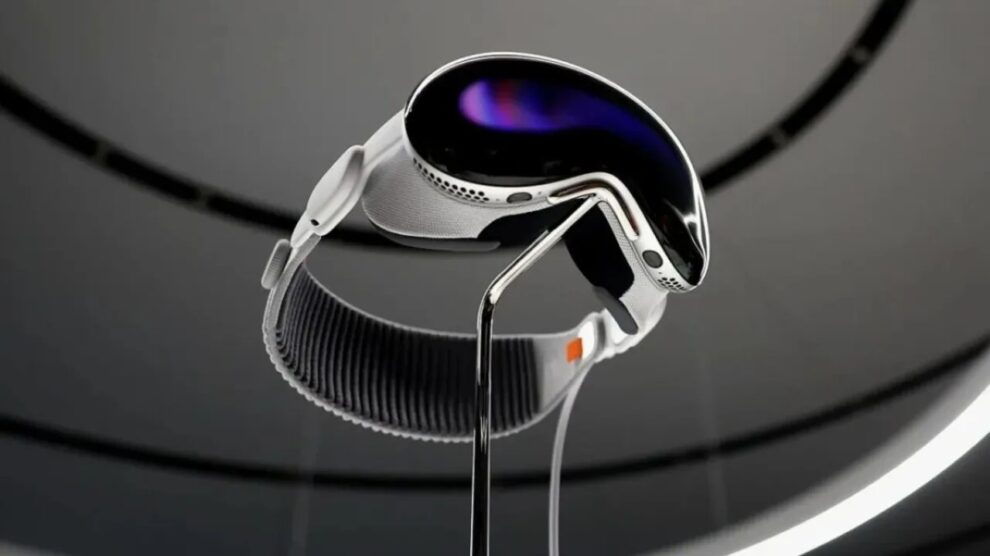Remember 2001: A Space Odyssey’s iconic sleek black monolith, overflowing with universe-altering promise? That visually captures the anticipation surrounding Apple’s fabled Vision Pro 2 headset. While details remain scarce, the device could represent Apple‘s next great technological leap, hurtling augmented reality forwards by years.
Let’s don our speculative hats and dive into the advancements this mystical AR machine might deliver, from processing blistering fast enough to blur realities to displays dazzling enough to enviously turn neighbors carrot orange.
Displays Primed to Meld Worlds
The current Vision Pro headset sports impressive resolutions courtesy of micro-OLED displays, but rumors suggest the Pro 2 may push visual fidelity even further with increased pixels and expanded field of view. This could enable AR overlays of photo-realism, seamlessly blending environments real and virtual into a cohesive whole. It paves the way for true immersion.
But the real potential whopper is eye-tracking technology being integrated directly into the display assembly. This could enable intuitive hands-free control of the AR interfaces simply by focusing your gaze, reducing awkward gestures. It promises to drastically improve natural user experiences.
Raw Horsepower to Fuel AR Innovation
Processing propels any platform forwards, and whispers point to the Pro 2 leaping beyond the A17 Bionic chip to something exponentially more powerful. This next-gen silicon could accelerate AR spatial mapping, real-time environment recognition and physicsmodeling allowing for breakthrough applications.
Imagine museum tours blanketed in interactive exhibits springing to life as you glance around. Or collaborating with remote colleagues in a virtual office where you manipulate 3D models like clay. The processing overhead to make seamless AR on this scale reality is immense – but Apple might have the silicon to get it done.
AR Still Faces Adoption Challenges
Of course, rumors often gloss over the more practical barriers facing any new technology. The Vision Pro 2 will likely launch at a premium price point inaccessible for many. And powering these experiences involves battery demands that could leave users tethered to chargers more often than they’d like.
But the most significant challenge involves convincing developers to build applications that truly unlock AR’s potential. Without a robust software ecosystem to take advantage of the hardware, the Vision Pro 2 risks being an impressively specified but underutilized machine. App development and distribution friction must be minimized to incentivize AR innovation.
The bottom line – Apple’s Vision Pro 2, if rumors materialize, could be their next frontier-pushing breakthrough. But fully realizing the AR paradigm shift requires an alignment of hardware prowess, user experience polish and compelling software support. We’ll soon find out if Apple’s legendary secret sauce has cooked up that recipe for success again with the Pro 2.
How do you think Apple’s AR headset ambitions might shift technology or even society? Would you be an early adopter? Let’s discuss in the comments!










Add Comment